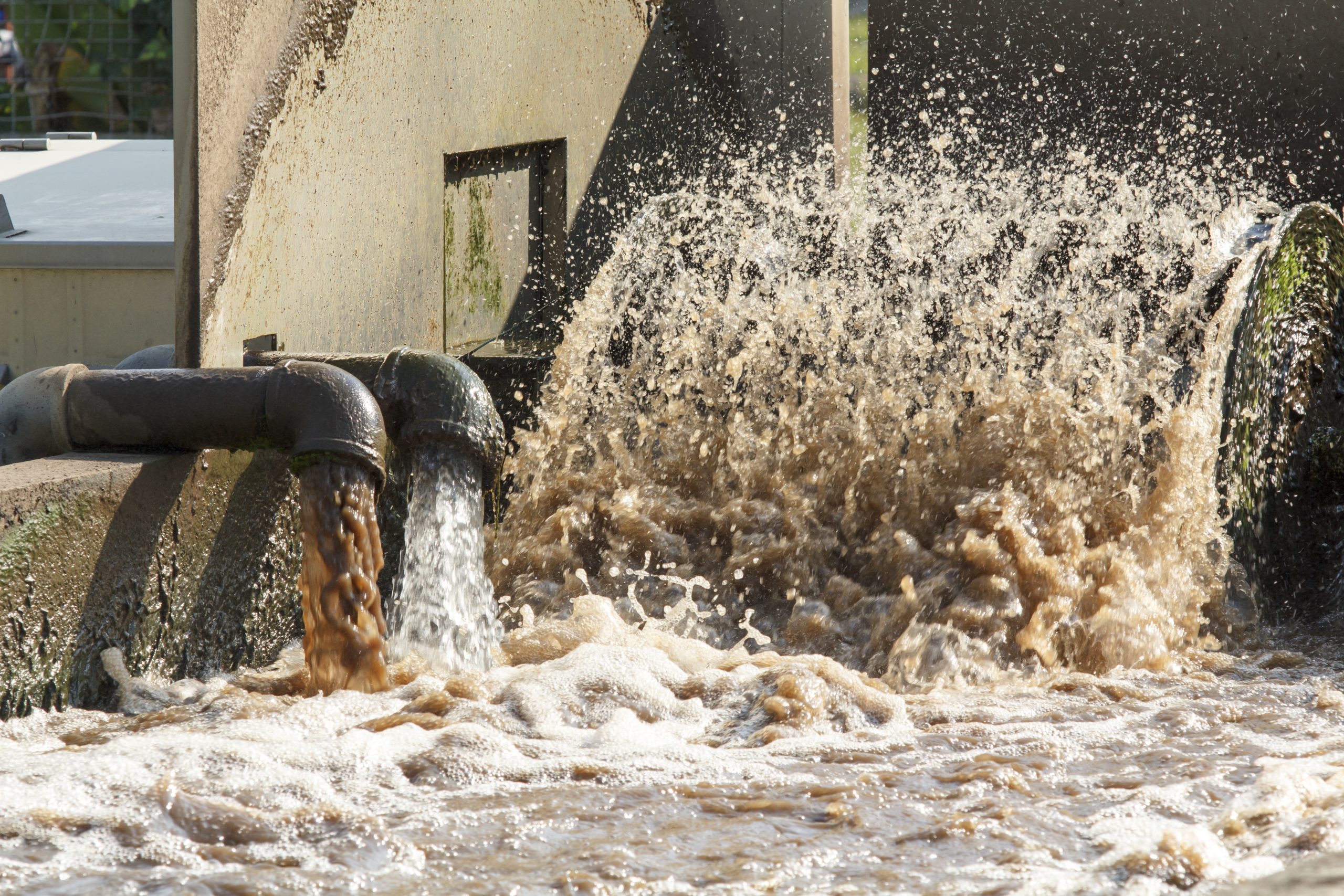Industrial Waste Water Treatment-- Advanced Solutions for Cleaner Effluents
Industrial Waste Water Treatment-- Advanced Solutions for Cleaner Effluents
Blog Article
Technologies and Advancements in Hazardous Waste Water Therapy Technologies
The landscape of industrial wastewater therapy is undergoing a transformative shift, driven by innovations that enhance both efficiency and sustainability. As governing standards evolve, the assimilation of AI and machine learning right into wastewater management systems assures to ensure and improve operations compliance.
Overview of Waste Water Therapy Technologies
Wastewater therapy modern technologies incorporate a range of approaches designed to eliminate contaminants from commercial effluents before their launch right into the setting. These modern technologies are crucial for keeping environmental equilibrium and ensuring conformity with environmental regulations. The key classifications of wastewater treatment consist of physical, chemical, and organic methods, each serving distinctive functions based upon the nature of the contaminants present.

Biological therapy approaches utilize microorganisms to weaken natural issue, making them particularly efficient for organic-rich effluents. Strategies like triggered sludge and biofilm activators harness the all-natural deterioration capabilities of bacteria, causing significant reductions in biochemical oxygen demand (FIGURE)
Advanced Filtration Strategies
Advanced filtering techniques stand for a vital development in the world of commercial wastewater treatment, improving the performance of impurity elimination procedures. Industrial Waste Water Treatment. These methods include a series of modern technologies, including microfiltration, ultrafiltration, nanofiltration, and reverse osmosis, which provide consecutive barriers for numerous fragment sizes and chemical structures
Microfiltration and ultrafiltration utilize membrane systems to eliminate suspended solids, microorganisms, and larger organic molecules, improving the quality of effluent prior to more therapy. Nanofiltration links the gap in between ultrafiltration and reverse osmosis, successfully eliminating natural substances and divalent ions, thus minimizing the lots on downstream procedures.
Reverse osmosis provides the highest degree of purification by permitting only water and tiny molecules to travel through its semi-permeable membranes, making it perfect for recovering top notch water from commercial effluents. Current innovations in membrane modern technology, consisting of the advancement of more fouling-resistant and resilient products, have substantially improved functional efficiency and lowered expenses.
Integrating these sophisticated purification techniques not only enhances the overall treatment procedure yet also contributes to sustainability initiatives by enabling water reuse and source healing in industrial settings. (Industrial Waste Water Treatment)
Organic Treatment Innovations

Moreover, the advancement of crafted biological systems, such as membrane layer bioreactors (MBRs), integrates biological treatment with innovative membrane filtering. This integration permits for greater effluent high quality and lowered footprint, making it appropriate for space-constrained industrial facilities. Advancements in genetically crafted microorganisms have likewise emerged, boosting the biodegradation of particular contaminants, such as pharmaceuticals and heavy metals, that are traditionally testing to eliminate.
Additionally, the application of bioaugmentation techniques, where valuable germs are presented to improve the existing biological treatment processes, has actually revealed promising outcomes in boosting therapy performance. These innovations collectively represent a pattern towards more lasting and reliable biological therapy methods that can adapt to the evolving complexities of industrial wastewater streams. As markets remain to focus on environmental compliance, these biological developments will play an important duty in wastewater monitoring.

Resource Recuperation Approaches
In industrial settings, the integration of Bonuses source recovery methods has actually ended up being significantly crucial for boosting sustainability and decreasing waste. These methods concentrate on drawing out important products and energy from wastewater streams, thereby transforming potential pollutants into reusable resources.
One popular technique is nutrition recovery, where nitrogen and phosphorus, usually existing over in wastewater, are captured and exchanged plant foods. This not just reduces environmental influences however likewise gives a round economic climate service for farming applications. Additionally, innovations such as anaerobic digestion enable the conversion of natural waste into biogas, a renewable resource resource that can counter nonrenewable fuel source use in industrial procedures.
Moreover, advanced filtering and membrane layer innovations promote the recuperation of industrial by-products such as salts and metals. These recouped products can be rehabilitated right into production procedures, minimizing the demand for virgin sources.
Future Fads in Waste Water Monitoring
As markets significantly focus on sustainability, the future of wastewater management is established to undertake significant changes. Technical innovations, such as expert system and equipment click site learning, will make it possible for extra effective surveillance and management of wastewater systems. These technologies can anticipate maintenance requirements, maximize treatment processes, and boost decision-making, inevitably reducing functional expenses and environmental influence.
Additionally, the integration of round economic situation principles will play a critical role in wastewater administration. Industries are expected to change towards systems that not only treat wastewater however likewise recoup beneficial resources, such as nutrients, water, and power. This shift will lessen waste and promote the reuse of products, aligning with worldwide sustainability objectives.
Emerging treatment methods, such as membrane layer bioreactors and progressed oxidation processes, will certainly additionally improve the effectiveness of wastewater treatment, enabling higher quality effluents appropriate for reuse. Furthermore, governing frameworks are likely to progress, highlighting stricter criteria for wastewater discharge and encouraging sectors to embrace cutting-edge therapy services.
Final Thought
In final thought, the development of commercial wastewater treatment innovations shows a substantial change towards boosted efficiency and sustainability (Industrial Waste Water Treatment). Advancements in sophisticated filtration strategies, organic treatments, and source healing approaches highlight the sector's dedication to ecological stewardship.
The landscape of industrial wastewater treatment is going through a transformative change, driven by developments that enhance both efficiency and sustainability.Wastewater treatment innovations encompass an array of techniques developed to eliminate pollutants from commercial effluents prior to their launch right into the environment.Harnessing the power of organic processes has actually led to substantial innovations in the treatment of industrial wastewater.Additionally, the implementation of bioaugmentation approaches, where beneficial germs are introduced to boost the existing organic therapy procedures, has shown promising outcomes in improving therapy performance. These innovations jointly represent a fad in the direction of more effective and lasting biological treatment techniques that can adapt to the advancing complexities of commercial wastewater streams.
Report this page